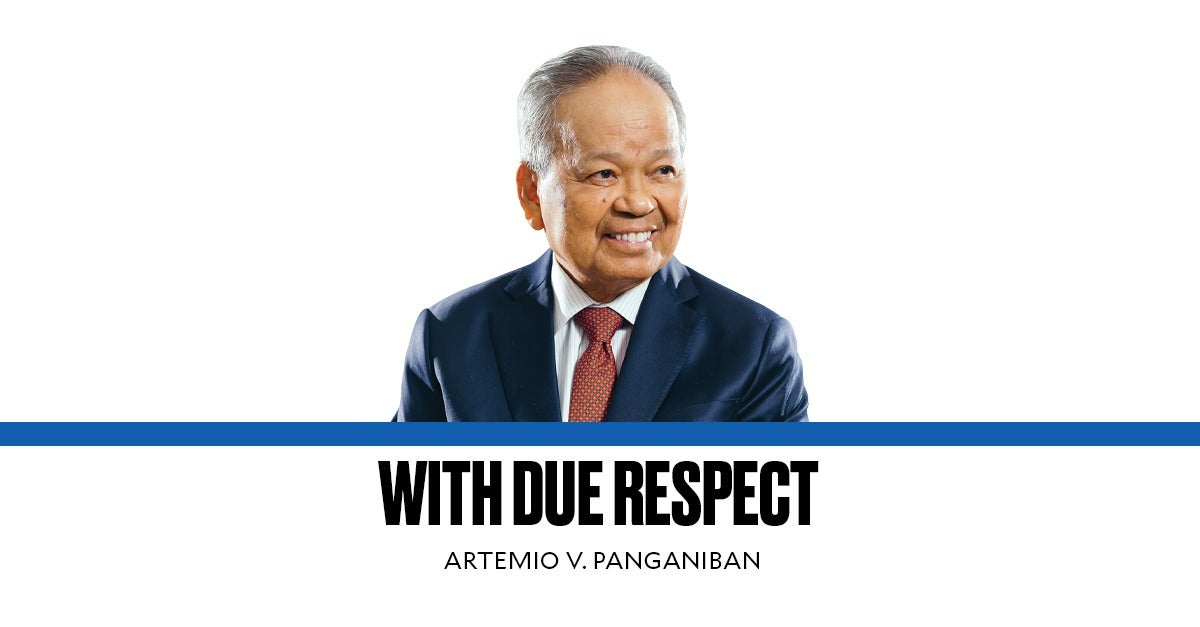Prescription in Duterte’s case in ICC and in PH

In my column on March 24, I wrote that the pivotal issue in the case against former president Rodrigo R. Duterte in the International Criminal Court in The Hague is whether the ICC has acquired jurisdiction, given that (1) under the ICC Statute, the Office of the Prosecutor (OP) has two years from the Philippines’ withdrawal from the ICC within which to conduct its preliminary examination and to apply for authority from the ICC Pre-Trial Chamber to conduct an official investigation; (2) the withdrawal of the Philippines from the ICC became effective on March 17, 2019; (3) former ICC chief prosecutor Fatou Bensouda started her preliminary examination on Feb. 8, 2018, when the PH was still an ICC member; (4) but she applied for authority to conduct a formal investigation only on May 24, 2021; and (5) the ICC Pre-Trial Chamber granted such authority only on Sept. 15, 2021. (see “Pivotal issue in Duterte’s ICC case,” 3/24/25)
CLEARLY, IF THE PRESCRIPTIVE PERIOD IS COUNTED from Bensouda’s unilateral examination without first securing the approval of the ICC Pre-Trial Chamber, the crime had not prescribed. But if prescription is to be counted from either her application for authority or the approval of such application by the ICC Pre-Trial Chamber that are both beyond the two-year limit, the crime had prescribed (or had been extinguished), the ICC had not acquired jurisdiction and Duterte must be released. In short, the pivotal issue is: When should the limit of two years be counted—from the date Bensouda started the examination, or from the date of judicial application and approval?
Based partly on the then prevailing PH jurisprudence when I wrote that column, I opined that the ICC had not acquired jurisdiction because under two 2023 cases—Republic v. Desierto (Jan. 16, 2023) and Corpuz Jr. v. People (Aug. 16, 2023)—the prescriptive period is tolled only when the information (or charge sheet) is filed in court by the prosecutor. Otherwise stated, the filing of the complaint by the offended parties in the PH prosecutors’ office does not toll the prescriptive period. The prescriptive period is counted only on the day our prosecutors file the “information” or charge sheet in the courts.
IN DUTERTE’S ICC CASE, IT WAS ARGUED THAT the prescriptive period should be reckoned from Feb. 8, 2018, when Bensouda started her preliminary examination because the OP is an integral part of the ICC itself. It is one of its four organs, the other three being the “Presidency, the Judicial Divisions (including Pre-Trial, Trial, and Appeals Divisions), and the Registry. While the Presidency and the Judicial Divisions are often treated as two distinct entities, they are collectively referred to as the ‘Chambers’ or ‘Judges’. The Office of the Prosecutor is responsible for investigating and prosecuting cases, while the Registry provides administrative and logistical support.”
In our country, the Department of Justice (DOJ), roughly the equivalent of the OP, and its prosecutors do not form part of the judiciary. Verily, under our tripartite system, they belong to the executive branch of the government, not to the judicial branch.
Nonetheless, in People v. Consebido (April 2, 2025, per J. Henri Jean Paul B. Inting, en banc), our Supreme Court abandoned the old doctrine and clarified that the prescriptive period should be counted from the filing of the complaint by the offended parties with the PH prosecutors, namely, the DOJ or the offices of the city or provincial prosecutors.
THE COURT EXPLAINED THAT WHILE CRIMINAL CASES SHOULD IDEALLY be resolved speedily, the reality is that delays are many times unavoidable. “It is unjust to deprive the injured party of the right to obtain vindication on account of delays that are not under [their] control. All that the victims of the offense may do … is to file the requisite complaint.”
Consequently, if the Duterte case were to be decided according to the current PH jurisprudence, then the case pending in the ICC should not be dismissed because, applying the recent PH Supreme Court decision in People v. Consebido, the two-year prescriptive period has not even begun yet because Bensouda started her preliminary examination while the PH was still an ICC member. Thus, prescription does not even apply.
I write this column to answer two major questions from lawyers and some discerning nonlawyers. They asked:
“First, why is it that Duterte’s case had not been dismissed when it is so obvious that the charge was filed in and approved by the ICC Pre-Trial Chamber more than two years after the PH had withdrawn its membership in the ICC? In fact, why did the Pre-Trial Chamber even authorize the arrest and detention of Duterte when it clearly had no jurisdiction?
“Second, if we apply PH law and jurisdiction, should Duterte have been arrested and detained at all? And, after he was so arrested and detained, why was he not released after a determination that prescription had already extinguished his crimes, if any?”
In sum, this explains how prescription could end Duterte’s detention in The Hague and how the recent somersault in its application in our country could, if used, prolong his case.





















